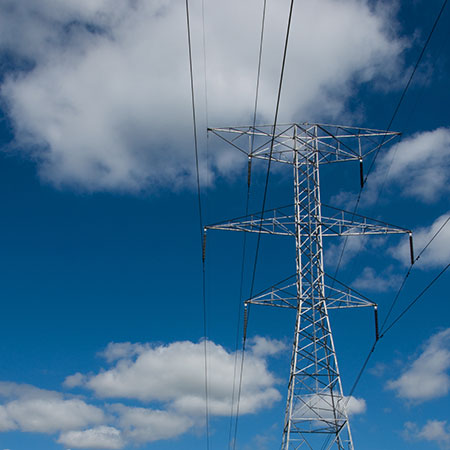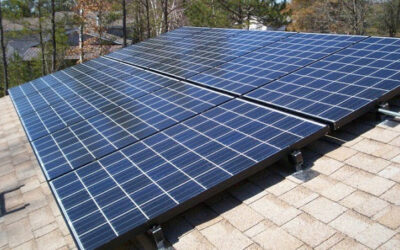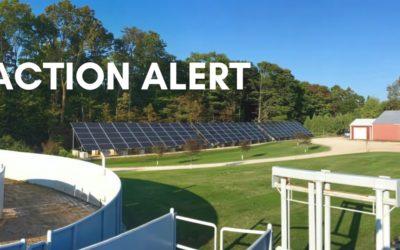NET METERING
Net metering is a utility billing policy that enables customers who generate electricity from their own solar systems to receive a bill credit for any energy they export to the grid. This arrangement encourages residential and business customers to invest in solar power, reducing carbon emissions and providing substantial economic benefits to their neighbors and communities.
According to Solar Energy Industries Association (SEIA), “traditional net energy metering (NEM) is fundamentally a bill credit that represents the full retail value of distributed electricity delivered to the distribution system, and has been a critical policy for valuing and enabling distributed generation.”

Cost Savings
Net metering allows solar system owners to offset their electricity costs by exporting excess electricity back to the grid. When the solar panels produce more electricity than is consumed on-site, the surplus flows out and serves their neighbors, which the utility resells at full retail rates. Net metering allows the solar-generating customer to receive retail credits for surplus solar, which comes in the form of a reduction in their electricity bill. This helps lower energy expenses and provides a predictable financial incentive for investing in rooftop solar, making solar a viable investment for low to moderate-income households. By generating electricity at the same place where they use it, net metering customers also avoid the costs the utility incurs overtime to send electricity over long distances from larger facilities.

More Clean Energy
Net metering encourages the adoption of renewable energy sources like rooftop solar, which offers a myriad of environmental and health benefits to Wisconsin communities. Compensating solar system owners for the excess electricity they generate promotes clean, sustainable power generation. This reduces reliance on fossil fuels, decreases greenhouse gas emissions, and supports the transition to a more environmentally friendly energy system.

Community Resilience and Energy Equity
Rooftop solar can be a boon for underserved communities, providing access to clean energy and reducing energy costs for households that may be disproportionately burdened by high electricity costs.

Grid Stability and Responsible Electricity Consumption
Distributed generation, such as rooftop solar, contributes to a more resilient and reliable power grid. During periods of peak electricity demand, solar panels can offset the load on the grid, reducing strain and the risk of blackouts. Diminishing the value of excess solar electricity exported to the grid will encourage customers to consume large amounts of electricity, like running the dishwasher or doing laundry, at times when their solar array is producing the most electricity. This excess renewable energy could flow to neighbors and make communities more resilient. Time-of-use policies encourage grid balancing, and traditional net metering aligns utility financial incentives with responsible energy practices. All customers should be motivated to consume energy at the most appropriate times. Doing away with net metering would lead to perverse energy consumption during times of peak grid demand.

Energy Independence and Empowerment
Net metering empowers individuals and businesses to take control of their energy production and consumption. It enables energy independence by allowing them to generate their own electricity and reduce dependence on the grid. This increased self-reliance gives individuals greater control over their energy costs, provides a hedge against rising electricity prices, and enhances energy security.

Local Job Creation and Economic Growth
The widespread adoption of rooftop solar supported by net metering can stimulate local economies and create jobs. The installation, maintenance, and servicing of solar systems generate employment opportunities in the renewable energy sector, fostering economic growth and providing long-term benefits for Wisconsin businesses and communities.
More on Net Metering
RENEW Wisconsin Recommends Next Steps in Value of Solar Study
On Wednesday, RENEW Wisconsin’s Policy team submitted comments to the Public Service Commission (PSC) in response to the Lawrence Berkeley National Laboratory’s (LBNL) review of the Value of Solar Studies (VoSS).
read moreExplaining Recent PSC Decisions on Net Metering and Parallel Generation Buyback Rates
Submit Comments to the PSC and Show Support for Net Metering and Fair Solar Compensation Rates from Municipal Electric Utilities
Sturgeon Bay Utilities (SBU) has filed an application with the Public Service Commission of Wisconsin to revise its parallel generation tariffs.
read more



